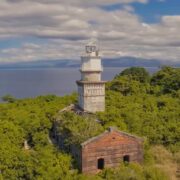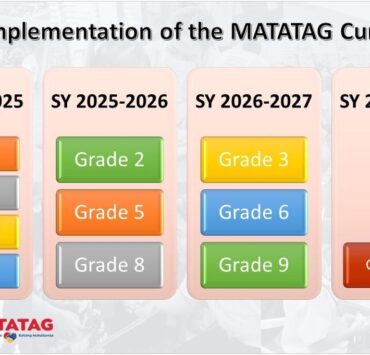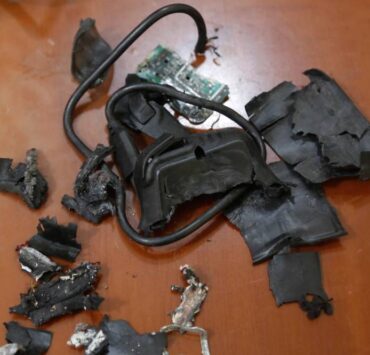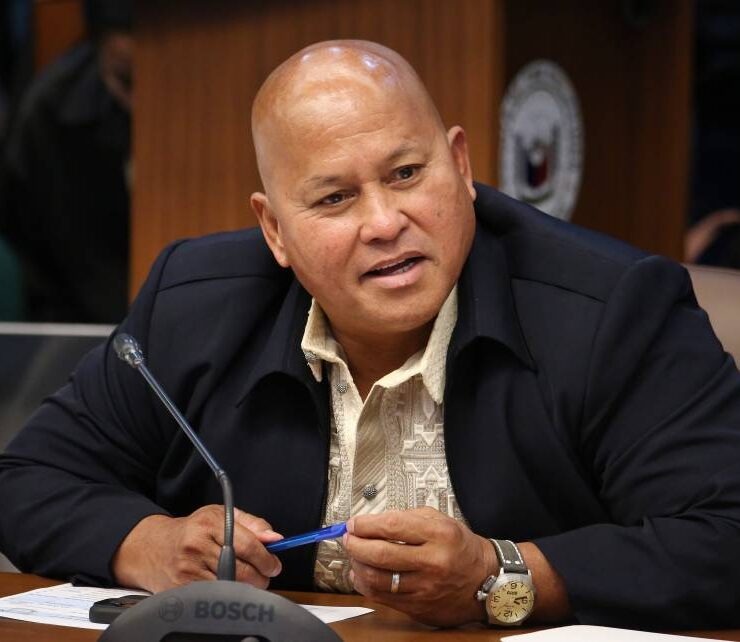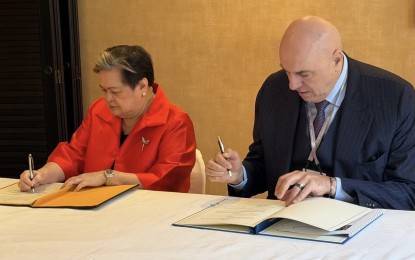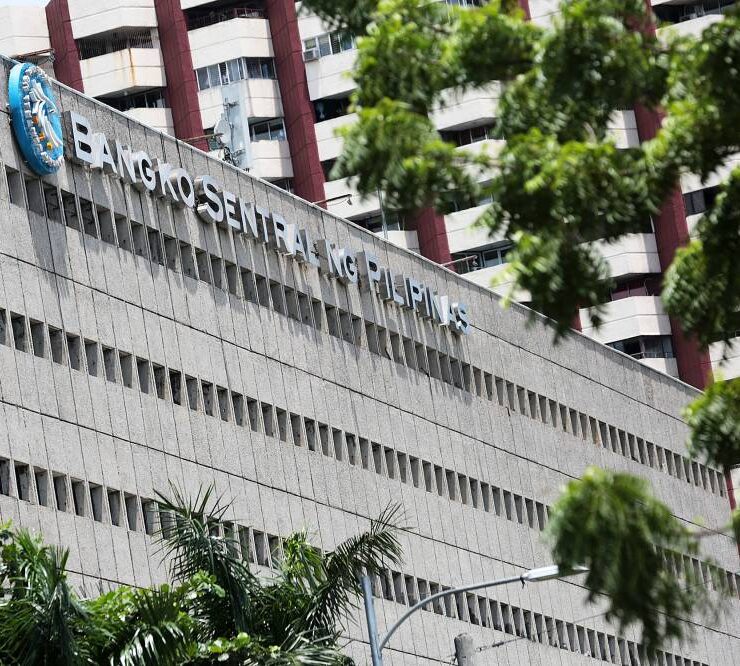Ex-mayors bare moves behind Du30 drug war
- Former Iloilo City Mayor Jed Mabilog said he was asked to link a then incumbent senator and an ex-Cabinet secretary to narcotics, while Tomas Osmeña of Cebu City told lawmakers not to fall for the ‘tears’ of a former ranking police official.
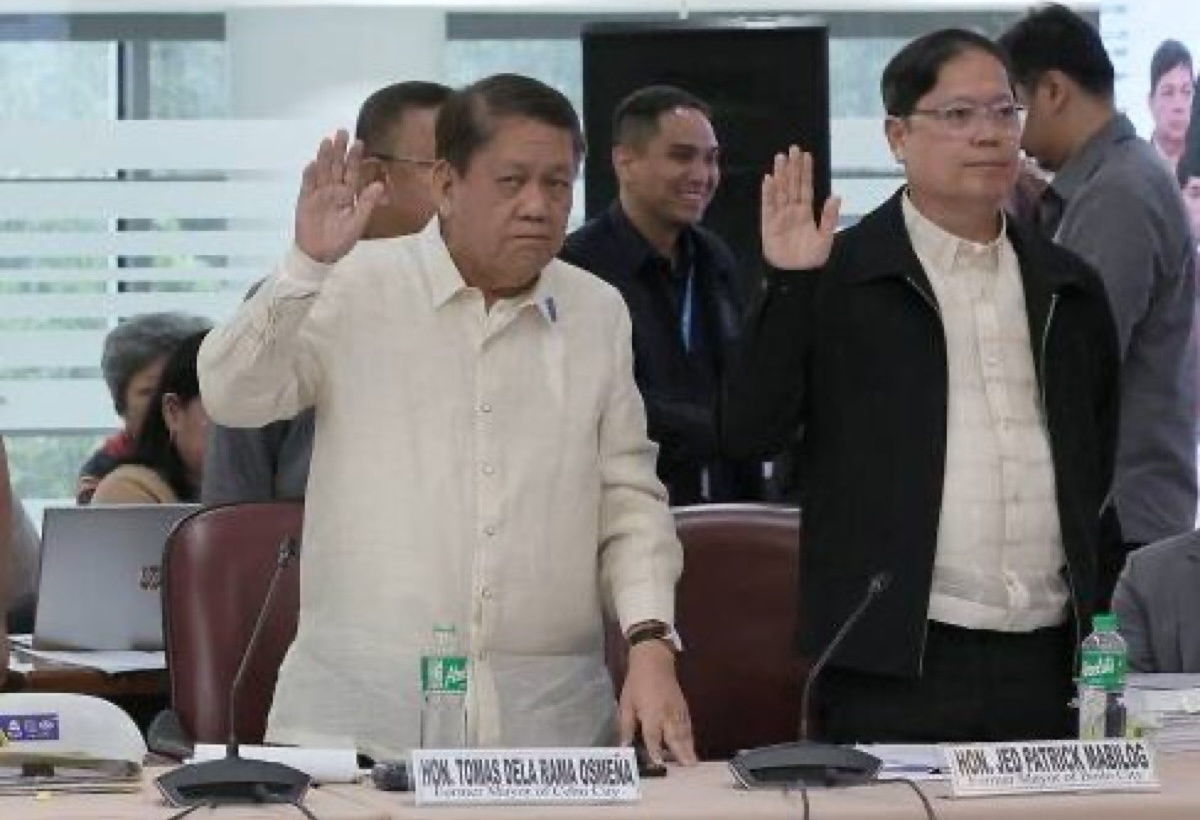
Two former mayors testified at the House of Representatives on Thursday on how the brutal drug war waged by then President Rodrigo Duterte was allegedly used to also exact “political vendetta” and reward favored police officials.
Former Iloilo City Mayor Jed Mabilog and former Cebu City Mayor Tomas Osmeña were among the latest witnesses to appear before the House quad committee.
It was the sixth hearing of the four-panel body formed last month to look into the previous administration’s initiatives or policies that lawmakers said spawned police abuses, official misconduct and organized crime, like the brutal crackdown on narcotics and the rise of Philippine offshore gaming operators (Pogos).
Reading from a prepared statement, Mabilog, who returned to the country on Sept. 10 after seven years in the United States, said he received a call from a police colonel in 2017 warning him that “your life is in grave danger.”
He took this to mean he would be killed soon, like what happened to then Albuera Mayor Rolando Espinosa and Ozamiz Mayor Reynaldo Parojinog, who were shot dead in police operations after being publicly shamed on Duterte’s so-called narcolist.
After Parojinog’s death, Duterte threatened Mabilog on national TV, telling him: “You would be next.”
Why the inclusion?
After the colonel, Mabilog said, a police general also called him to say he would be taken off the list if he would implicate then Sen. Franklin Drilon and former Interior Secretary Mar Roxas in the drug trade.
In response to questions from Surigao del Sur Rep. Johnny Pimentel, Mabilog surmised that he landed on the narcolist because he didn’t support Duterte in the 2016 presidential race.
In Iloilo City, he recalled, Duterte got only 13.7 percent of the vote while Roxas, then the Liberal Party (LP) standard-bearer, topped the local count by a landslide.
Mabilog also noted that Drilon, another LP leader who also hails from the city, is a second cousin of his.
Upon learning that he was on the narcolist, Mabilog said, he made “several attempts” to ask Duterte in person why he was included, but that he was ignored.
On Aug. 28, 2017, he got a call from then PNP Western Visayas director Bernardo Diaz, who invited him to meet with then PNP chief and now Sen. Ronald dela Rosa at Camp Crame the next day about his inclusion.
Don’t go to Crame
But on the day of the meeting, the PNP colonel called and warned him against proceeding to Crame “as your life is in grave danger.”
An hour later, he said, his wife Marivic got a text message from the colonel’s wife, saying there were “20 men surrounding your house and if you go to Crame they will kill you.”
Mabilog fled the country two days later, on Aug. 30. While on a stopover in Japan, he phoned Dela Rosa, who sounded “sympathetic.’’
“[Dela Rosa] said he knew I was innocent, that I was not involved in illegal drugs, and promised to help me,” he recalled.
But after that conversation, he got another call from a police general who advised him not to return to the Philippines for “you will be forced to point fingers at an opposition senator and a former presidential candidate as drug lords.”
Mabilog later confirmed, when asked by Abang Lingkod Rep. Joseph Paduano, that the police general was referring to Drilon and Roxas.
Once in the United States, and as Duterte continued to threaten him, Mabilog applied for political asylum, which was granted on March 29, 2019.
Reading from his statement, he said the grant “serves as a clear recognition of the political persecution I endured under former President Duterte’s administration [and] underscores the US government’s acknowledgment that the accusations leveled against me [were] politically motivated and lacked credible evidence.”
His experience showed how the Duterte drug war was used to “serve political vendettas,” noting the absence of any validation done about the narcolist.
“Rather than upholding the rule of law and ensuring the fair administration of justice, law enforcement agencies became complicit in Duterte’s politically driven agenda,” he said. “This widespread disregard for due process revealed the deep-rooted influence of political power over law enforcement, leading to numerous violations of human rights and the erosion of trust in the country’s justice system.”
Osmeña testimony
Also at Thursday’s hearing, former Cebu City Mayor Osmeña spoke mainly about Royina Garma, the city’s former police chief, accusing her of being on the take from illegal gambling syndicates.
Garma’s role in the drug war cropped up in the House inquiry after she was implicated in the killing of three convicted Chinese drug lords inside the Davao Prison and Penal Farm (DPPF) in August 2016.
Some lawmakers also wondered why Duterte later appointed her general manager of the Philippine Charity Sweepstakes Office (PCSO) in 2019 despite her apparent lack of credentials for the post.
Osmeña gave lawmakers a copy of a four-page report signed by Manuel Fraginal Sr., chief of PCSO interbranch security monitoring, which named Garma among “suspected protectors” of an illegal numbers game.
When the report was prepared, Garma was then regional chief of the Criminal Investigation and Detection Group Western Visayas.
‘SPO4 Art’
The report also named a certain “SPO4 Art” as her bagman.
According to Osmeña, this SPO4 Art was Arthur Narsolis, the same police officer who allegedly instructed two DPPF inmates to kill three Chinese convicts.
The prison warden at the time, Supt. Gerardo Padilla, earlier testified that he was “subjected to intense pressure” by Garma not to intervene in the plot, and that Duterte personally called him later to “congratulate him” for its execution.
No Palace action
Osmeña said he opposed Garma’s transfer to Cebu City because of Fraginal’s report.
He personally brought up the matter to Duterte, who then referred him to his special assistant and now Sen. Bong Go.
He also recalled giving the report to Salvador Panelo, then Duterte’s chief counsel, but no action was taken.
Osmeña alleged that when Garma was Cebu police chief, “so many people were hurt, some people were killed,” referring to her enforcement of the drug war.
‘She’s dangerous’
“She is vicious; don’t let Garma’s tears fool you,” he said. “She’s dangerous, believe me. Very dangerous.”
Osmeña was referring to her appearance before the committee on Sept. 12, where she broke down under questioning.
The committee cited Garma in contempt and ordered her detained for supposedly being evasive about the nature of her dealings with Duterte that could explain her PCSO appointment.
She remained in House detention, though was not called to Thursday’s hearing. INQ













